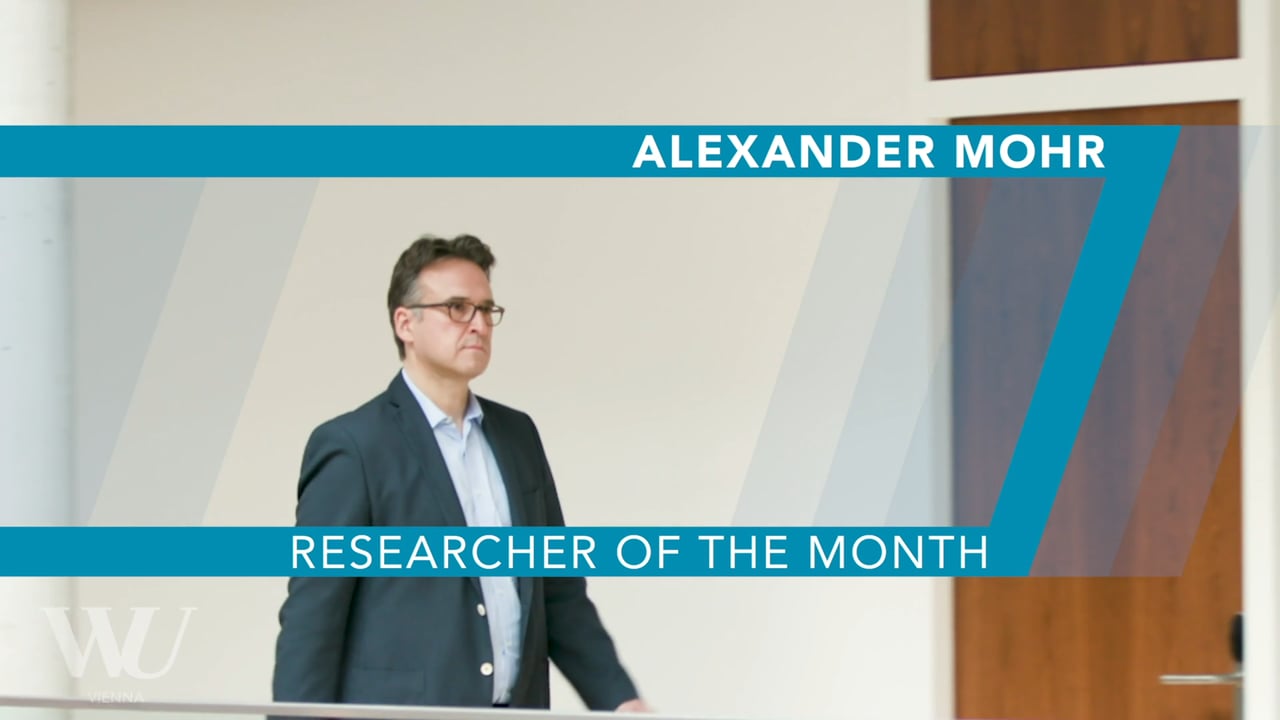Brexit: Why expats want to leave the UK
After much back and forth, Brexit is now finally done. As of January 31, 2020, the UK has left the European Union. Now we are at the start of an eleven-month transition period during which the UK will negotiate a trade deal with the EU. Many expats living in the UK are facing great uncertainty because it is still unclear what Brexit will mean for them. WU Professor Alexander Mohr has investigated how expats working for various organizations are dealing with this uncertainty and what makes them want to return to their home countries or stay in the UK.
Around three million EU citizens are living and working in the UK, including many scientists and academics. “For some industries, international staff is particularly important because the specialized expertise and skills these industries need are not available from domestic talent alone,” WU Professor Alexander Mohr explains. “In the higher education sector, internationality is also very important, particularly in teaching and research,” he points out. Alexander Mohr, a professor of international business at WU and a native of Germany, worked in the UK himself before coming to WU. In the UK, he held professorships at the University of Kent and the University of Bradford. During that time, he became interested in finding out why his German colleagues wanted to return to their home country and what role the Brexit vote played in their plans.
Growing anti-foreigner sentiment
Professor Mohr conducted surveys before and after the Brexit vote in June 2016 to investigate the motives behind expats’ intentions to stay in the UK or to return to their home countries. The questionnaires were answered by 124 German scientists and scholars working in the UK. The surveys showed that expats who had felt well integrated before the Brexit vote and were satisfied with their jobs remained largely unaffected by the vote and its consequences and most of them planned to stay in the UK and continue working there. In contrast, academics who did not feel integrated in the UK and lacked solid social networks there showed much stronger tendencies to return to their home country after the vote. “The reasons given by the respondents showed that the growing anti-foreigner sentiment in the UK that was further fueled by the Brexit vote played a decisive role in expats wanting to return to their home countries,” says Alexander Mohr. “On top of that, some respondents also felt general uncertainty about whether they would be allowed to keep their jobs or change to a different job in the UK,” he points out.
Organizations need to act
Organizations such as universities and business enterprises depend on expertise and personnel from abroad, which means that they need to act. “Organizations and firms may lose international staff due to growing anti-foreigner sentiment. Depending on the expertise these employees contribute to the organization, this loss of international staff may have severe consequences – for example in the healthcare sector, which is highly dependent on know-how and expertise from abroad,” says Professor Mohr. “In this light, it is all the more important for organizations and firms to support the integration of their international employees in the host country and help them build a social network and feel at home there,” he points out.
About the study
For his study, Alexander Mohr conducted a standardized survey among 124 German scientists and scholars in the UK, nine months before and nine months after the Brexit vote in June 2016. The average age of the subjects was 45. At the time they took the survey, they had been living in the UK for two to 36 years. 46 percent of the respondents were women, and 54 percent men.
About Alexander Mohr
Alexander Mohr is professor of export management and internationalization processes at WU’s Department of Global Business and Trade. He studied business administration at the universities of Tübingen, Edinburgh, and Erlangen-Nürnberg and completed his doctoral degree in social and economic sciences at Friedrich-Alexander-Universität Erlangen-Nürnberg, where he also earned his venia docendi with a thesis on HR management at international firms in 2008. After holding professorships at the University of Bradford, where he also headed the Bradford Centre in International Business, and the University of Kent, he was appointed full professor at WU Vienna in 2016. In his research, Alexander Mohr focuses on internationalization processes in business enterprises, especially market-entry strategies, the speed of internationalization processes, and HR management in companies in the process of internationalization. One of his foremost research interests is analyzing the relations among private enterprises and the relations between private enterprises, public-sector players, and NGOs in international business. Alexander Mohr publishes his research in internationally renowned journals, including the Journal of International Business Studies, Strategy Science, and Academy of Management Learning and Education.

Alexander Mohr about the study
![[Translate to English:] Working paper [Translate to English:] Working paper](/fileadmin/wu/_processed_/1/2/csm_Mohr_Brexit_working_paper_January_2020_1299e5c8a3.png)


